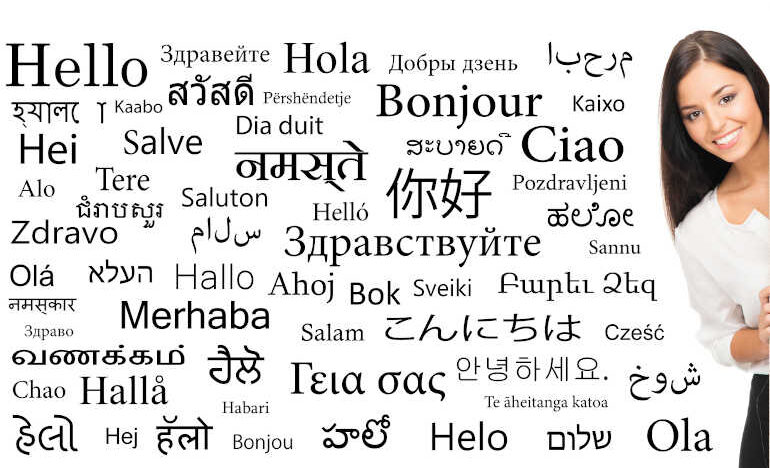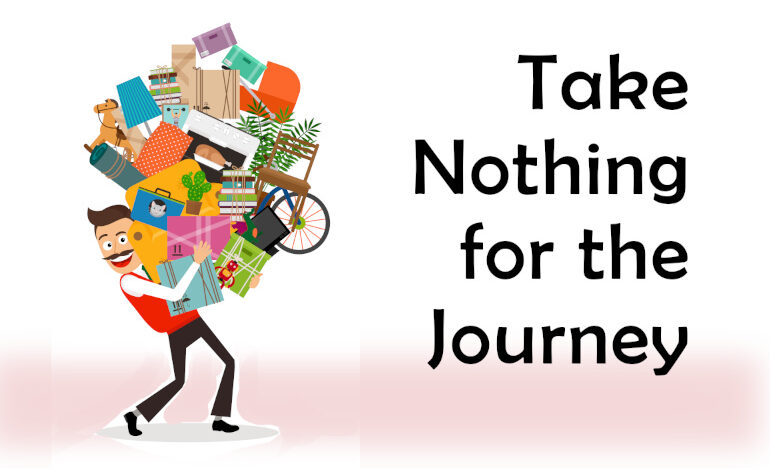Family Matters #12: Getting comfortable with other cultures

By Lucia Ferrara
Are you aware of your own world view or that of your son’s or daughter? Maybe even your neighbor? Interacting with people and being able to understand and communicate effectively with one another is very important in today’s society. Cultural Competence is #34 of the Search Institute’s 40 Developmental Assets, which it identifies as “building blocks of healthy development that helps young people grow up healthy, caring and responsible.”
Cultural Competence is not only understanding your own background but includes understanding the customs, beliefs and behavior from various other groups. For young children and adults, this concept is very important because it helps them to effectively work, interact and develop meaningful relationships with friends of various cultural backgrounds. This is why it is so important to teach your children about people of other ethnic, racial and cultural backgrounds.
If you really think about it, our world is truly diverse and global, especially the United States. We are the melting pot of the world, because a lot of folks immigrate here from other countries to start new lives. We need to expose our children to a variety of cultures and people. It’s so easy to stay in our “bubble” and not branch out. This is not a healthy way to teach them to appreciate differences. It does not mean you have to like or love everyone but it teaches youth to treat others with equality, tolerance and respect. According to the Search Institute, “43 percent of young people, ages 11-18, report having knowledge of and comfort with people of different cultural, racial, and ethnic backgrounds.”
All the articles in the Family Matters series are available here.
It is important for your children to learn about their own cultural heritage, family and ethnic background. For me, it gives me comfort that I have taught and continue to teach my children about where their ancestors came from. Teaching our youth about their own cultural background includes things like, customs, beliefs and behaviors of those family and friends they interact with.
For example, my family comes from an Italian/Croatian background, so I teach my children different things about how I grew up in that home. When I was little, we always had a special homemade Croatian fish/pasta dish for Christmas Eve because we would not dare eat meat on that day. On Christmas Day, my mom would then make homemade lasagna, frittatas and fig cookies for dinner. These are all traditions I have shared with my children and I hope they pass them along to their family and friends as well.
Can you think of any tradition you can share with your children? I encourage you to because this will allows your kids or the youth around them to increase their knowledge about themselves and others. This will help them understand and interact with friends and groups of various backgrounds.
Never miss an article published to the Renewal Center website: Sign up to receive our newsletter
Our society is increasingly globalized. I believe technology has made our interaction with others around our communities and our world a very common experience. Our young people need to prepare to enter a workforce and society that involves building bridges across borders with people of diverse settings and backgrounds. As parents and caring adults, we set the example for this to become effective. We need to teach our children to communicate and engage with others who are from different cultures and experiences.
We need our youth to appreciate differences and embrace them with respect. Let’s make our children proud of who they are and where they come from. I encourage you to all reflect on the following tips for building this asset.
- Discuss at the dinner table with your children about connections, culture and family roots. For example, maybe explain to them what makes you proud about your heritage and tell stories of your childhood traditions.
- Encourage kids to get to know neighbors and people from other communities that have a different heritage than you. Ask them about traditions or celebrations that are unique to them.
- Talk about empathy and how to demonstrate it. Seeing the world as another person sees it doesn’t mean you agree with them or not, but teaches our children that they can learn to understand other perceptions or positions.
Until next time!
[Lucia Ferrara is the Director of Hospitality at Precious Blood Renewal Center and the lead organizer here of Parent Cafes. Share your thoughts with Lucia or ask her questions by using the form below or sending an email to info@pbrenewalcenter.org. Read more about the Parent Café here.]
Photo 57457137 © Maksim Shmeljov | Dreamstime.com
Related

Take Nothing for the Journey
An Assembling God’s Puzzle video
By Fr. Garry Richmeier, C.PP.S.
Jesus’ teaching about what to take on a journey — nothing — is actually good advice for building trusting relationships. Don’t bring your “stuff” into the relationship; listen deeply and respec their views and situation, understand their struggles.

Pilgrims of Hope, Episode 6: Walking with Cancer Survivors
Hosted by Fr. Ron Will, C.PP.S.
We are talking with people who find hope amid difficult circumstances or bring hope to others. In this episode, Kathy Keary talks about how centering prayer, journaling and other spiritual practices helped her cope with two life threatening health issues.
Categories
Assembling God's Puzzle Coffee with Padre Cooking & Spirituality Encounters of the 4th Kind Family Matters Reflections on the Eucharsitic Prayers Spiritual Resources Taize Prayers The Contemplative Life Traveling with Pilgrims of Hope Uncategorized Videos Week of Prayer for Uhristian Unity When you need a little help
